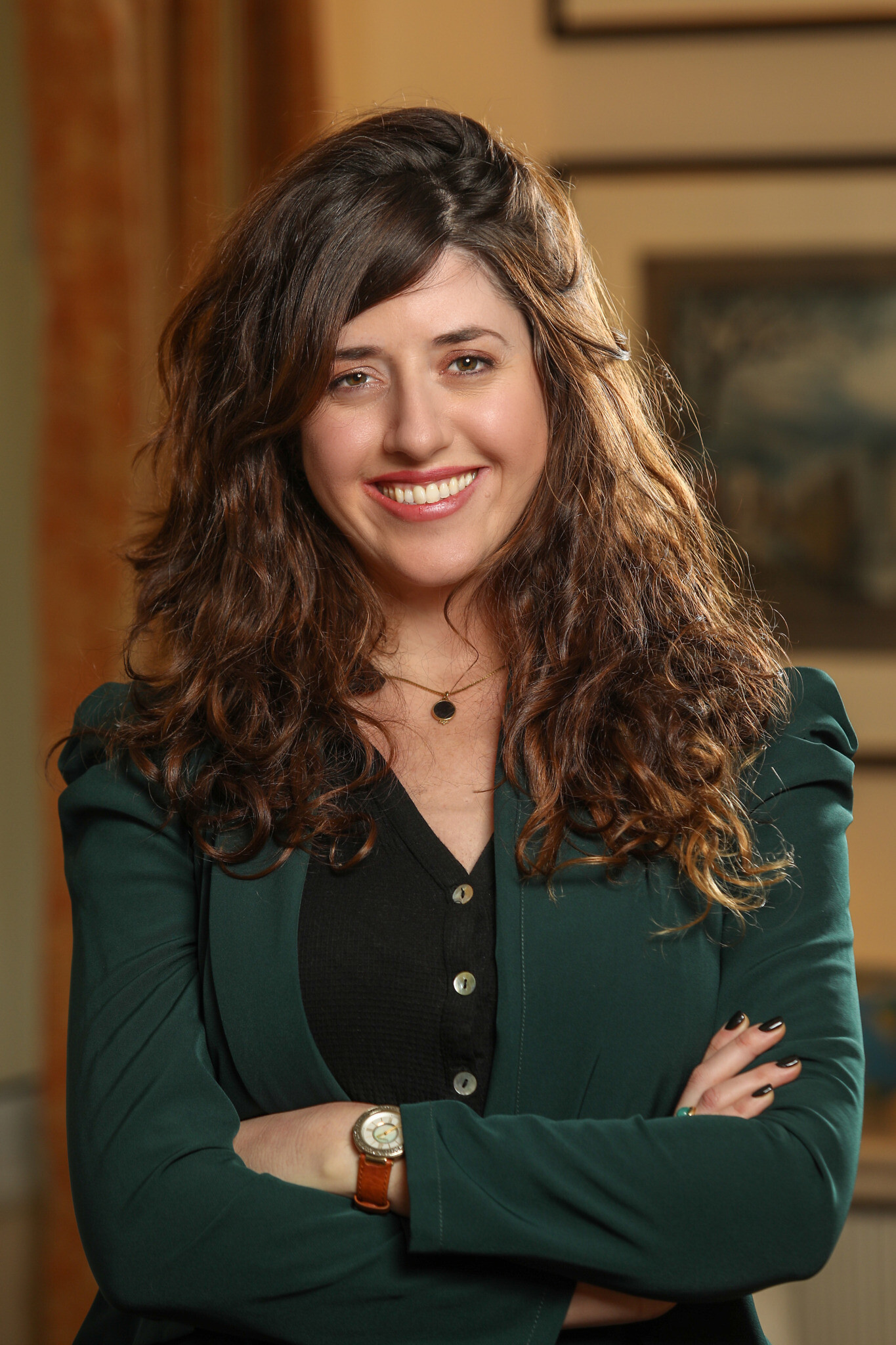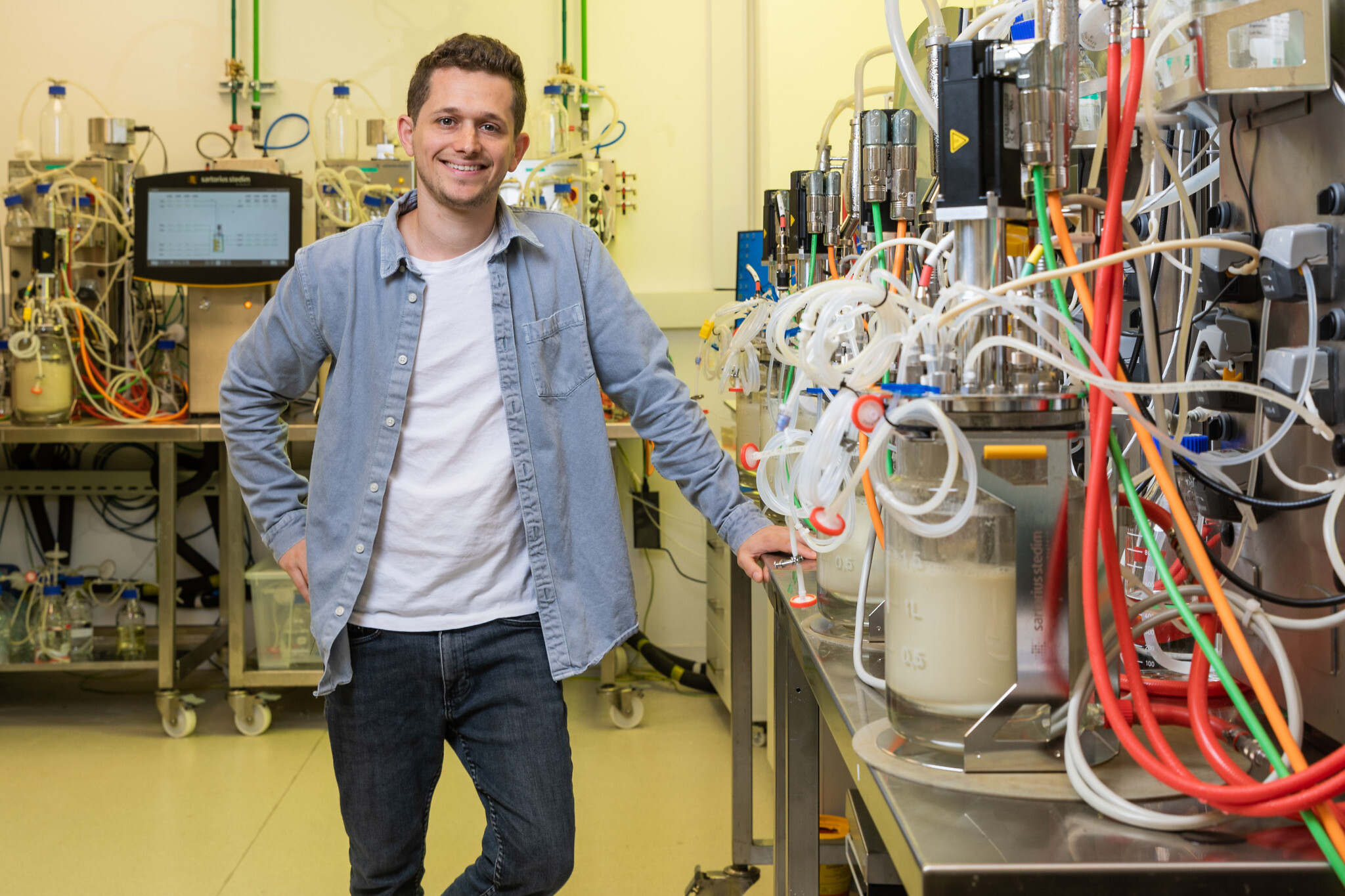Fake glorious food: the rise of Israeli innovation in foodtech
As climate change poses a mounting threat to our planet and its people, an array of Israeli food technologies may just hold the secret to securing the future.
From fish made from plants to 3D printed meat, Israeli companies are creating astounding opportunities to tackle the food industry’s biggest challenges: feeding an escalating population with diminishing food supplies and creating foods without damaging the environment. On a lighter note, it could mean kashrut keepers being able to eat ‘fake’ milk and meat together for the first time (but as both are fake you might need to check with a rabbi first – probably a discussion for a whole other article!). But fish has always been a safe bet and when it looks as tasty as the featured plant protein posing as salmon, faking it gets interesting.
Formerly a bit of scientific fun, foodtech is no longer a novelty. It’s a necessity. Food production contributes more than one-third of global greenhouse gas emissions, much of it from dairy farming and meat production. According to the Good Food Institute (GFI) – a non-profit organisation promoting research and innovation in food technology – a transition away from animal protein “has the potential to deliver 14 to 20 percent of the emissions mitigation the world needs until 2050 to stay below 1.5°C.” That’s a lot of science and numbers to consume, but adoption of alternative proteins has the potential to “dramatically slow climate change,” McKinsey reports.
Foodtech covers several areas, among them nutrition, packaging, food safety, processing systems, cultured meat, novel ingredients, retail and restaurant tech, health and wellness and alternative proteins. Quite a list, but one that’s firmly in Israel’s grasp as the country is leading the innovation.

“The ‘start up nation’ has been coping with challenges from the get-go,” explains Hadar Huberman, Clean Growth Sector Lead at the UK Israel Tech Hub. “With the sword of survival hanging above its neck by the threats made (and executed) by its neighbouring countries, that combines with it being a very small territory, enduring hot weather, a lack of natural resources, swamps and huge desert, the young nation had many challenges to solve, and fast.” Sounds like a job for a superhero (aka Israel) which has literally stepped up to the plate to be the country that will produce the technologies – “That would support the world’s adaptation and mitigation of the changing climate” notes Hadar.
The country is now home to more than 400 foodtech companies, over 100 of which are in alternative proteins. More than 40 percent of these companies are considered start-ups, but their breakthrough technology has the potential to help shape the future of our food. You may not have heard of Wilk (formerly Biomilk), MeaTech, Aleph Farms, Redefine Meat, Future Meat, and ChickP, but you will as these are just some of the exciting Israeli companies changing the global menu.
But what makes Israel so well-positioned to innovate in this area?
As director of new business at OurCrowd, one of Israel’s most active venture firms, Allie Feuerstein has the answer: “Foodtech combines Israel’s two strongest assets – agriculture and technology. The country has advanced its agriculture sector immensely in the last half century, and this know-how is now driving food tech innovation.
“Understanding the incredible negative impact our current food system has on climate change and the planet, Israel is positioned at the forefront of this growing field of innovation,” informs Noga Sela Shalev, CEO of the Fresh Start foodtech incubator in Kiryat Shmona. “When I’m asked what’s the ‘secret sauce’, I usually explain it’s a unique combination of a globally-aspiring entrepreneurial culture; a supportive R&D and financial structure provided by the Israeli innovation authority and the private sector; and deep research and know-how in agriculture, biotech and data reliant software.”
Noga believes it’s the strong Israeli foodtech community that differentiates it from all others. “It is what allows the creativity and speed needed to bring breakthrough solutions, to disrupt the currently wasteful, polluting food industry, responsible for 25 per cent of the greenhouse gas emissions.”
With so many keen to follow Greta Thunberg’s example, the market forecast for alternative meat, eggs, dairy, and seafood products is set to reach at least $290 billion by 2035 according to a report by Boston Consulting Group (BCG) and Blue Horizon Corporation (BHC).
Unsurprisingly, Israeli foodtech has become a tasty prospect for global investors, attracting money from some of the world’s largest food corporations such as Coca-Cola, Nestlé, Starbucks, McDonalds, Heineken and Unilever. Last year, alternative protein in Israel experienced its biggest investment year on record with startups in the space raising $623 million. In total just over 1 billion shekels ($320 million) was raised during the first half of 2022 – a 160% increase from last year, with Israel coming second only to the United States in the field of raising investments.
Israeli cultivated meat companies raised $507 million in 2021 led by Future Meat, which raised $347 million for a US production plant and Aleph Farms raised $105 million. And then there’s Redefine Meat, which got the Michelin star nod via chef Marco Pierre White – “who was blown away” by printed meat which he has added to his menu. With MPW among its fans, it’s no wonder that Redefine netted a further $135 million this year to help with its expansion plans.

Enthusiastic company leaders with commitment to the cause adds to sells put forward by the likes of Ari Ben Dror, assistant director at GFI Israel. “Reducing meat consumption is a growing cultural trend in Israel which has the highest percentage of vegans and vegetarians in the developed world. It’s safe to say Israelis are comparatively well- informed about the environmental harms of meat production. Yet, globally, Israel is number one in per capita poultry consumption and number four in per capita beef consumption. So, clearly, diet change is not the solution to this problem.
“GFI’s number one goal is that governments should be putting resources into open access research and development in the field of alternative proteins, as well as promoting private sector incentives for manufacturing. This is not about convincing people to change their diets; it’s about producing the exact product people love and want to eat – but from plants and cell cultivation. The whole climate community is advocating for decarbonising energy, but they are almost all completely asleep in the meat industry, beyond suggesting people should eat less meat.”
Cows might sleep easier knowing there is also a trend away from dairy production, boosted by the likes of Remilk, a developer of animal-free dairy, which has raised $130 million in investment to take up the gauntlet in the climate change battle by producing identical dairy protein, without using a single cow.

“Data around animal agriculture as a massive contributor to greenhouse gas emissions is staggering,” says Aviv Wolff, Remilk CEO. “Imagine that cows were a country: a recent McKinsey report showed that such a country would be second only to China as the world’s largest greenhouse gas emitter. The combination of a scalable dairy protein with the sheer impact precision fermentation has on the carbon footprint is catching the attention of global corporates and policy makers, setting the stage for significant investments and paving the way to a better tomorrow.”
OurCrowd has been investing in Israeli foodtech since 2013 and recently launched a targeted $30 million fund to invest in companies across a wide range of cutting-edge food technologies. The planet’s rapidly rising population and acute shortages of fresh water and food is the driving force.

“People are starving and we have the solutions to save them,” says Eli Nir, senior investment partner at OurCrowd, “Through innovation, we can replace meat and dairy proteins in short supply with alternatives that don’t harm the environment. We can the use of land, water and fertiliser while increasing food production. Israel is emerging as a world power in the new generation of food and agricultural technology.”
The Holy Land as a global force for good is a good way to start a new year and with the dawn of the Abraham Accords, Eli paints a picture of Israeli food, water, agriculture and energy technology “helping to alleviate conditions across the Middle East, Asia and Africa, where food and water scarcity raises fears of social and political upheaval.”
Our Crowd currently has ten foodtech startups in its portfolio, including Mermade, which is on a mission to create seafood from cells, subsequently cutting production costs. This could be a game changer because growth media have made alternative proteins prohibitively expensive.
“I know for a fact that it would lead to a huge calamity if we didn’t have these (food technologies,” warns CEO and co-founder Daniel Einhorn. “Our future is definitely in the hands of Mermade and other food and climate tech companies as the scientific consensus is that if we keep going this way, by 2030 we will eliminate the ability to keep the planet sustainable for the medium term.”
Israeli startup Maolac identifies and separates proteins from bovine colostrum (impressive) determined to put an end to the dumping of millions of gallons of mammals milk produced for newborns and created a protein-rich alternative full of superfood ingredients. CEO and co-founder Maya Ashkenazi Otmazgin believes sustainability is essential, but healthy and nutritious food is equally important. “In order to fulfil both agendas, we have to use current technologies from the pharmaceutical world to establish relevant methods in the food industry. Only then we create a difference.”
Earlier this year, Rehovot-based Plantish unveiled the world’s first vegan, whole-cut salmon fillet. And it’s not too good to be true: it’s the one in the picture made by using a proprietary blend of plant proteins and patent-pending technology but with the nutritional value of real salmon.

For co-founder and CEO Ofek Ron Plantish, “it’s really exciting to be a part of an ecosystem that pushes the boundaries of what is possible. At Plantish, our mission is to save our oceans by creating a delicious, safer and more sustainable source of seafood, made from plants.”
The Israeli government recognises foodtech as a huge growth opportunity. In June over $1 million was earmarked for an Alternative Protein Research Grant Programme with the ministries of agriculture, innovation, science and technology in partnership with GFI Israel creating a budget to support researchers in their pursuit of new food tech.
Perhaps one of the most significant and original incubators in the country is The Kitchen FoodTech Hub, which is owned by the Strauss Group and the Israel Innovation Authority, in collaboration with Prof. Shulamit Levenberg from the Biomedical Engineering faculty of the Technion.
It was by bringing government, industry and academics together that The Kitchen Hub nurtured cultivated meat company Aleph Farms. Paying it forward is how science moves forward and everyone benefits.
“Food security is a critical issue in the Middle East, where the vast majority of the meat/beef is imported,” says Didier Toubia, Aleph Farms, co-founder and CEO. “Because of this governments in the region are especially interested in the benefits of cultivated meat. Beyond enabling us to better manage natural resources and increase food quality, combining innovative production systems with sustainable agriculture increases the overall resilience of food systems. Diversifying our food supply is key to bolstering resistance to shocks. Moreover, these production systems would allow us to produce food anywhere, anytime, independent of water, land and climate. Shorter, predictable and more resilient supply chains, makes us less fragile and the result would be a feedback loop in which sustainability strengthens resilience and vice versa. For innovation to support a transition of our food systems back into balance, business strategies and policy agendas need to align more firmly.”
Earlier this year, GFI Israel published a report urging the government to put a national strategy in place to support the country’s growing food tech industry if it hopes to maintain a key role in the sector over the coming years.
Part of this strategy would include building an infrastructure to support the local industry in the form of multidisciplinary research centres, technology transfer programs, research grants and training. Specific innovation hubs for cultivated meat, plant-based proteins, and fermentation tech startups are also in the mix. The GFI report suggested a figure of $450 million will be required to set out the path over the next 10 years, with the Israeli government supplying about 56 percent of this funding, that’s $291 million , with the rest drawn from private investors.

“Israel’s burgeoning foodtech sector has a critical role to play in helping us meet the twin challenges of food security and sustainability,” insists Jonathan Morris of the Israel Practice and the Food and Agribusiness Practice at Bryan Cave Leighton Paisner (BCLP). Hadar Huberman concurs: “Prior to COP26, Israel announced a target of net zero emissions by 2050, and the decision has started moving from strategy to operative mode. The combination of these facts provides a tremendous stimulation to the Israeli tech ecosystem to pivot and target the climate tech field. The governmental encouragement will join the already existing passion of Israeli entrepreneurs to generate impact and cultivate solutions for the world’s climate challenge. This will doubtlessly position Israel as a global powerhouse of climatetech.”
Israel’s foodtech sector is intensifying. But so is climate change. It is clear that private and public sector support is needed at all levels to foster alternative protein growth and innovation. The science may be complex, but others will start to see the country as a food provider, a planet protector and, potentially, a superpower. This we can easily understand. It seems that Marco Pierre White already does.

Thank you for helping to make Jewish News the leading source of news and opinion for the UK Jewish community. Today we're asking for your invaluable help to continue putting our community first in everything we do.
For as little as £5 a month you can help sustain the vital work we do in celebrating and standing up for Jewish life in Britain.
Jewish News holds our community together and keeps us connected. Like a synagogue, it’s where people turn to feel part of something bigger. It also proudly shows the rest of Britain the vibrancy and rich culture of modern Jewish life.
You can make a quick and easy one-off or monthly contribution of £5, £10, £20 or any other sum you’re comfortable with.
100% of your donation will help us continue celebrating our community, in all its dynamic diversity...
Engaging
Being a community platform means so much more than producing a newspaper and website. One of our proudest roles is media partnering with our invaluable charities to amplify the outstanding work they do to help us all.
Celebrating
There’s no shortage of oys in the world but Jewish News takes every opportunity to celebrate the joys too, through projects like Night of Heroes, 40 Under 40 and other compelling countdowns that make the community kvell with pride.
Pioneering
In the first collaboration between media outlets from different faiths, Jewish News worked with British Muslim TV and Church Times to produce a list of young activists leading the way on interfaith understanding.
Campaigning
Royal Mail issued a stamp honouring Holocaust hero Sir Nicholas Winton after a Jewish News campaign attracted more than 100,000 backers. Jewish Newsalso produces special editions of the paper highlighting pressing issues including mental health and Holocaust remembrance.
Easy access
In an age when news is readily accessible, Jewish News provides high-quality content free online and offline, removing any financial barriers to connecting people.
Voice of our community to wider society
The Jewish News team regularly appears on TV, radio and on the pages of the national press to comment on stories about the Jewish community. Easy access to the paper on the streets of London also means Jewish News provides an invaluable window into the community for the country at large.
We hope you agree all this is worth preserving.






















